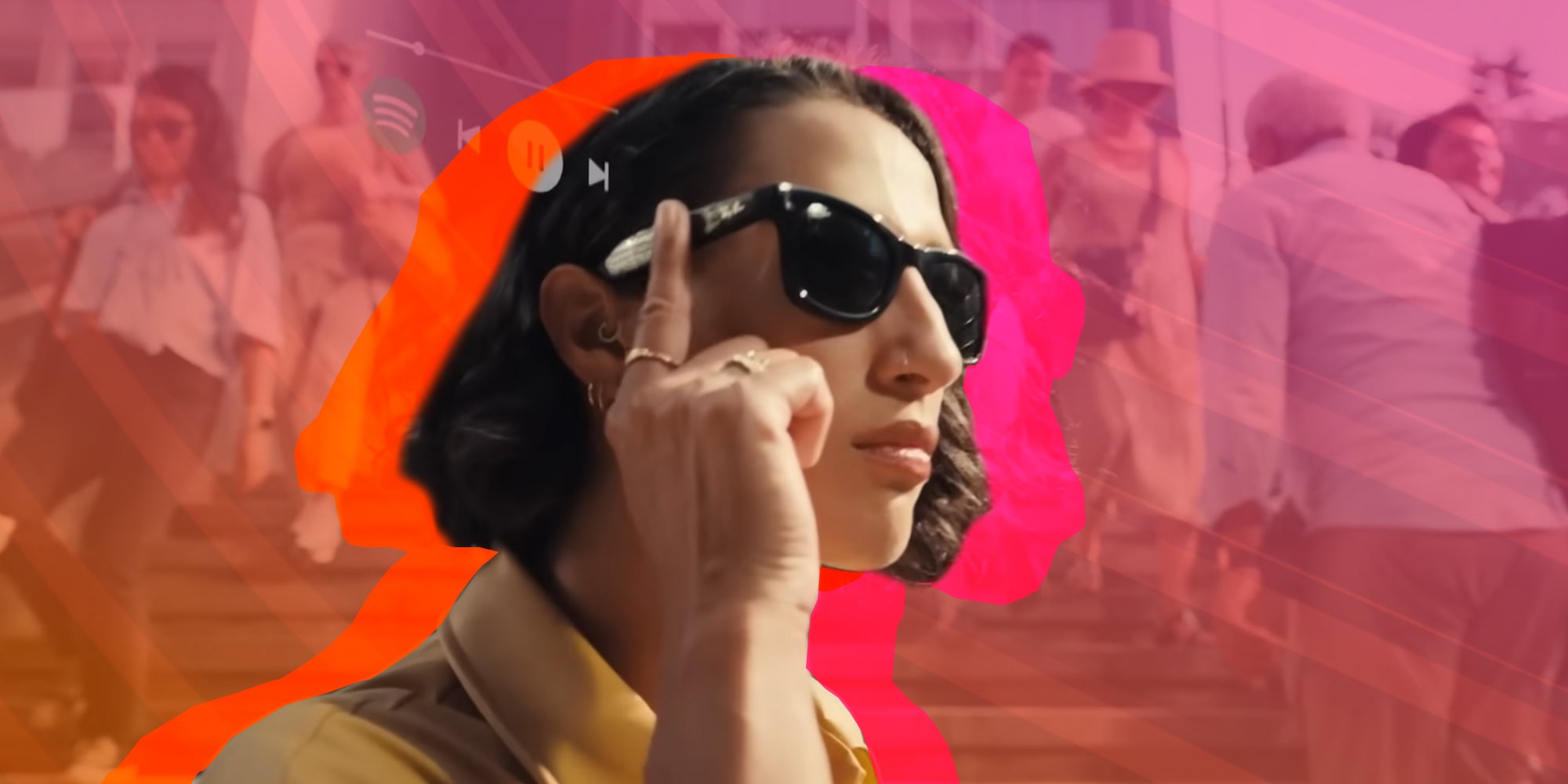
Call me cynical, but I’m already completely and utterly tired of the Ray-Ban Meta glasses TikTok trend, which reached a new peak of virality this week. The premise of the trend is quite simple: Impossibly good-looking creators demonstrating the fluid and hi-tech ways you can utilize the shiny new camera glasses as a creator.
Of course, the only thing worse than a perfectly poised promotion is a promotion that, like this one, absolutely screams ‘contrived’ but has no paid #ad or #gift marking.
Yet it all seems to have fallen into place a little too quickly and easily, from all the top creators doing the trend to its not-so-subtle product placement. The glasses were first available for purchase in October 2023, but in the past couple of weeks, thousands of posts with millions of views popped up related to the glasses, particularly on TikTok. Today, interest in the glasses peaked sharply on Google Trends.
Of course, there’s no way to know if Meta was officially involved in this TikTok push — it’s possible they simply sent a bunch of TikTok influencers free products or press briefings about the Ray-Ban Meta smart glasses, hence the wave of interest. (Typically, influencers are supposed to disclose in captions if products are gifted to them, according to FTC guidelines. But this space is quite unmoderated, so there’s no way of knowing for sure what’s going on.)
For the five of you still on Facebook, you probably noticed that Meta Ray-Ban sunglasses are a fairly big deal on there as well. In fact, the spam pages promising you brand-spanking-new Ray-Ban and smart glasses are the only sign of cultural life we’ve seen on the online wasteland since about 2019. Instagram, too, has a fair amount of content about the glasses.
It makes sense that Meta is also seemingly taking advantage of one of Gen Z’s favorite marketing platforms, TikTok. But while the slick trend certainly shows the advantages of Ray Ban Meta glasses and how you can take your content to the next level, some social media users are similarly struck by the … forced nature of it all.
“It smells of orchestrated campaign activity,” one marketing expert wrote on Twitter. “It’s a solid activation if it’s changing perception but I’m still not convinced meta is the right partnership for this.”
“Is it a W that Gen Z likes a Facebook product, or is it an L that Facebook had to pay influencers to advertise their product on their biggest competitors platform?” another queried.
Meanwhile, a third user had a more nuanced take on the situation, pointing out that “don’t all companies do the exact same thing of paying influencers to promote their products?”
If nothing else, this trend, which has already amassed hundreds and millions of views on TikTok, is the perfect example of why inorganic marketing can at times hinder a product rather than help it. Because now that these glasses are being shoved down my throat, any potential interest I may have had on them has long waned.
Never forget that the only thing Gen Zers hate more than forceful marketing is forceful marketing that tries to tell them what to do. As they put it, “Silence, brand.”




